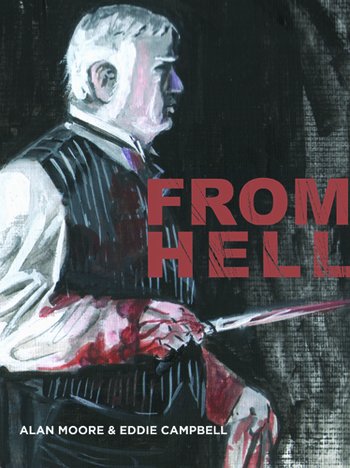This is a satire by Czech writer Karel Čapek. An invention creates unlimited resources, except food, and a byproduct of religious devotion to it by all within its grasp. After most of the world is destroyed because of religious fervor arising out of each community’s belief in the righteousness of its own absolute as opposed to competing absolutes, well, you’ll have to read the rest of this to find out.
All posts by BrianM
Fuzzy Nation, by John Scalzi, 301 pages (2011)
This is a work of science fiction that I read in about two hours. A fine quick read from the author of Old Man’s War. And a nice break from the Nazis.
The Third Reich at War, by Richard J. Evans, 926 pages (2008)
This is the final book in the trilogy of book by Richard J. Evans about the Third Reich. The human hatred. The destructiveness. The suffering and needless deaths. The senseless war. The downfall of Hitler and his sick cohorts. Inglorious Basterds is the way it should have ended, but the reality for the Third Reich was less dramatic, more sobering. And painful beyond measure for the people whose lives and families were destroyed. Highly recommended read.
The Third Reich in Power, by Richard J. Evans, 941 pages (2005)
This is the second in a trilogy of books written by Richard Evans about the Third Reich. Any book that begins with “The Night of the Long Knives” deserves a read. Engrossing, well-written, and thoroughly documented. Don’t read this post. Read the trilogy.
The Magic Mountain, by Thomas Mann 854 pages (1924)
After reading The Coming of the Third Reich, I thought I would take a quick detour and re-read Thomas Mann’s The Magic Mountain. At 854 pages and in 6-point type in the Everyman’s Library edition, it is a long book. (If you really care, the book is set in BEMBO and appears to be about 10-point type.)
The book was first published in 1924, but apparently Thomas Mann began writing the story before the outbreak of the first great war. There are characters and events, but the story is more about ideas, philosophies, and, at times, a war of words and minds.
The best time to read this book is in the midst of studying advanced literature, history, and philosophy. Thirty years later, between beers, it’s a little more difficult to digest.
Suffice to say, Hitler probably never read this book, and as a recognized German 20th century German classic, those are two reasons alone to read this tome. At least once. I’ve read it twice. In English. Next time auf Deutsch?
North Carolina Three Kick Rule
A Yankee lawyer went duck hunting in eastern North Carolina. He shot and dropped a bird, but it fell into a farmer’s field on the other side of a fence. As the lawyer climbed over the fence, an elderly gentleman asked him what he was doing. The lawyer responded, “I shot a duck and it fell in this field, I’m going in to retrieve it.”
The old farmer replied. “This is my property, and you are not coming overhere.”
The indignant lawyer said, “I am one of the best trial attorneys in the U.S. and, if you don’t let me get that duck, I’ll sue you and take everything!
The old farmer smiled and said, “Apparently, you don’t know how we do things here in North Carolina. We settle small disagreements like this with the NC Three-Kick Rule.”
The lawyer asked, “What is the NC three-Kick Rule?”
The Farmer replied. “Well, first I kick you three times and numberswiki.com
then you kick me three times, and so on, back and forth, until someone gives up.”
The Yankee attorney quickly thought about the proposed contest and decided that he could easily take the old southerner. He agreed to abide by the local custom.
The old farmer slowly climbed down from the tractor and walked up to the city feller. His first kick planted the toe of his heavy work boot into the Yankee lawyer’s groin and dropped him to his knees. His second kick nearly wiped the man’s nose off his face. The barrister was flat on his belly when the farmer’s third kick to a kidney nearly caused him to give up.
The Yankee lawyer summoned every bit of his will and managed to get to his feet and said, “Okay, you old redneck southerner, now it’s my turn.”
The old North Carolina farmer smiled and said, “Naw, I give up. You can have the duck.”
I am Trying to Break Your Heart
From Hell (1991-1996), 572 pages, by Alan Moore

From Hell (1991-1996), 572 pages, by Alan Moore, illustrated by Eddie Campbell
It is difficult to describe the effect this graphic novel has on the reader. The writing is harsh, surreal. The story is unsettling. The drawings capture the seamy dirty underbelly of London in the late 1800s.
Moore certainly does not intend this to be historically accurate or dispositive on the identify of Jack the Ripper. Instead, he immerses the reader into the mystery and horror of one of the world’s most notorious serial killers and the effect the killings have on the people immediately affected by them.
At Home (2010), 512 pages, by Bill Bryson

A history of residential space, from the water closet to the pantry, from the kitchen to the bedroom. A remarkable, witty, and comprehensive look at residential architecture.
The Complete Novels (1939-1967) 787 pages, by Flann O’Brien
The Complete Novels (1939-1967) 787 pages, by Flann O’Brien. At some point while reading O’Brien’s At Swim-Two-Birds, you realize that O’Brien has taken you on a dizzy journey of unapologetic and very funny virtuoso writing. Like Cormac McCarthy with irrepressible humor. The Third Policeman is disturbing. Probably would have kept a sober Edgar Allen Poe up at night. I admit I found The Poor Mouth, The Hard Life, and The Dalkey Archive less accessible and less interesting.
